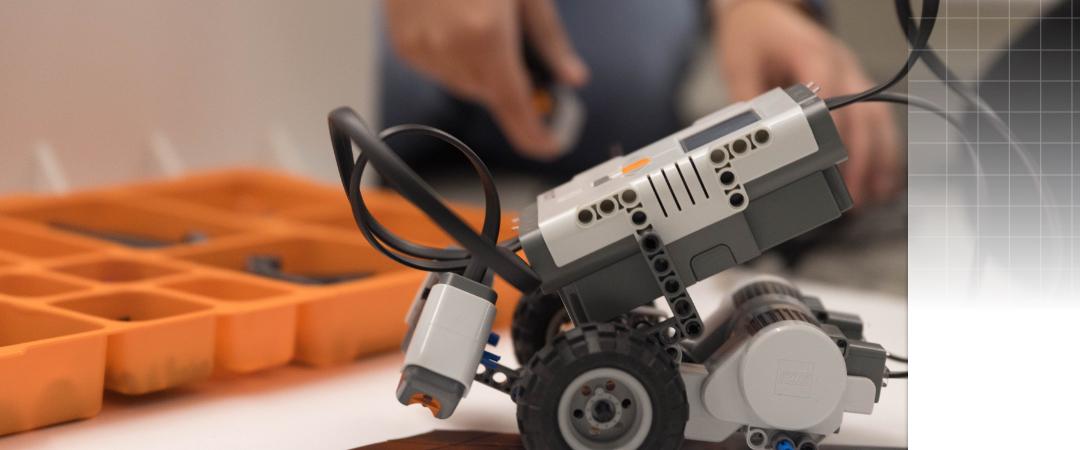Quick Facts
Quick Facts

Professor Zoe Szajnfarber’s students have regular opportunities to interact with aerospace leaders. NASA’s chief scientist and chief technologist have scheduled regular sessions with members of her lab to test out proposed strategies. Professor Szajnfarber’s lab members also were invited to watch a SpaceX launch as VIPs.
Juniors in Professor Erica Gralla’s systems engineering course have the opportunity to work on projects with FEMA. Students have presented to large groups of FEMA decision-makers, both on-campus and at FEMA headquarters.

Assistant Secretary of the Army for Installations, Energy and Environment Alex Beehler guest-lectured an engineering management course and discussed the country’s transition from fossil to renewable energy sources with students.
Professor Erica Gralla and her students have a project in Uganda with the US Agency for International Development to study decision making to strengthen the Ugandan agricultural supply chain systems.
Quick Facts
- Full-time faculty: 13
- Undergraduate students: 84
- Graduate students: 1048
- Annual research expenditures (3-year average): $1.4 million
- A partial list of our research partners includes: NSF, NASA, NIH, DARPA, USAID, DoE
SEAS BS Major | ||
Systems Engineering | 2023 Enrollment | 2024 Enrollment |
| 48 | 56 | |
| 2023 Graduates | 2024 graduates | |
| 24 | 13 |
Degrees And Programs
- BS in Systems Engineering
- BA in Applied Science and Technology
- Minors in Operations Research, Systems Engineering, and related fields
- 5 year BS/MS programs
- MS in Engineering Management
- MS in Systems Engineering
- MS in Data Analytics
- Graduate Certificates
- PhD in Engineering Management
- PhD in Systems Engineering
- Doctor of Engineering
- Online Doctoral Programs
Research Areas
- Technology, Policy, and Management
- Risk, Resilience, and Decision-Making
- Complex Systems Design and Operation
- Data and Models for Socio-Technical Systems
EMSE-Based Research Institutes and Labs
- Environmental and Energy Management Institute
- Institute for Crisis, Disaster, and Risk Management
- Institute for Data, Democracy, and Politics
- Decision-Making and Systems Architecture Laboratory
- Strategic Urban Ecologies, Engineering, and Decision-Making Laboratory
- Gralla Research Group
- Helveston Research Group
- Systems Modeling Laboratory for Economic Decisions (SysMoLED)
- SzajnLab
- Santos Research Group
- Van Dorp Research Group
- Abeledo Research Group
Points of Pride
- Professor David Broniatowski uses web and social media data to understand important problems in public health, including shifting attitudes toward vaccination. He also serves as the associate director of GW’s Institute for Data, Democracy, and Politics, where he studies the spread of misinformation online.
- Professor John Helveston is a sustainable technologies expert who studies the factors that shape technological change, with a particular focus on transitioning to more sustainable and energy-saving technologies. One of the topics in which he has a particular interest is China’s rapidly developing electric vehicle industry and its leading position as a producer of low carbon energy technologies.
- Professor Erica Gralla studies operations and supply chain management in disaster response and other urgent or uncertain environments. She recently worked on a research project to eliminate bottlenecks at a COVID-19 testing site in Maryland, using modeling to identify processes that could be improved to deliver test results faster and slow community spread.
- Professor Joost Santos develops disaster risk analysis and systems engineering models that are used in disaster scenarios, such as hurricanes and influenza pandemics. His models study interdependent infrastructure and economic systems and track the flow of goods and services across a regional economy during disasters. Professor Santos is currently serving as a Fulbright Scholar in the Philippines.
- Professor Ekundayo Shittu uses a systems engineering approach to aid decision making under uncertainty on investments into energy technology portfolios and the economics of climate change response policies. For example, since microgrids are key to building resiliency into the larger power grid, one of his research projects assesses policy concerns and technical and financial barriers to microgrid financing.
- Professor Joseph Barbera, an EMSE faculty member and emergency room physician, serves as an emergency medical responder to search and rescue missions and public health emergencies around the world and has helped create a national preparedness strategy to coordinate healthcare resources during emergencies.
- EMSE faculty members model their innovative thinking in the classrooms, as well as in their research. When the Covid-19 pandemic required them to teach remotely, Professor Erica Gralla decided to use Minecraft to introduce her students to the fundamentals of systems engineering and manufacturing.




